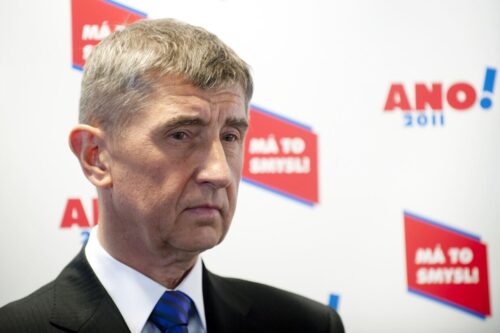Czech Republic

In Czechia, populism has unfolded mainly along the lines of Euroscepticism, anti-establishment politics, xenophobia, and anti-immigration and anti-Islam sentiments. Despite the benefits of being an EU member with steady economic growth, high-level prosperity, and a low unemployment rate, Euroscepticism is a constant of Czech politics. The rise of the incumbent Prime Minister Andrej Babiš’s ANO began in 2013 and has come at the expense of the traditional center-right and center-left parties. ANO’s rise represents the surge of anti-establishment populism. Alongside the growth of populist parties, the presidential office also contributes to the populist discourse, as President Zeman’s anti-Roma, anti-Islam, and pro-Russia rhetoric illustrate.
The Czech Republic – officially shortened to Czechia in 2016 – is a central European EU member, a parliamentary republic with a stable democratic tradition. Liberated from the Austro-Hungarian Empire following the First World War, the Czechs together with the Slovaks formed Czechoslovakia. Leading up to the Second World War, Nazi Germany invaded Czechoslovakia and annexed the Czech-populated parts of the country while Slovakia, as a German ally, became a separate independent state. The Czechs and the Slovaks reunited after the war but the communist takeover of power in 1948 disrupted the federal republic’s long-held democratic tradition. After the Warsaw Pact, troops occupied the country against Alexander Dubcek’s liberal reforms, known as the “Prague Spring” of 1968; Czechoslovakia remained within the Soviet sphere of influence until the end of the Cold War. In 1989, Czechoslovakia, through what came to be known as the Velvet Revolution, underwent a smooth transition from communism to democratic rule and the market economy. The leading figure of the revolution and a former dissident, Václav Havel, became the first president of the post-communist period and launched Czechoslovakia’s return to the West.
After the Czechs and the Slovaks peacefully dissolved their federal union through the so-called “velvet divorce” in 1993, the Czech Republic and Slovakia emerged as two separate states. Václav Havel served as president for two more terms in the newly independent Czech Republic while the pro-free market Václav Klaus led the government as prime minister in 1993-97 and pushed for sweeping privatization of the public sector. Endeavoring to remove the state from the economy altogether, Klaus turned his radical neoliberalism – often dubbed Czech-style Thatcherism – into a right-wing populist project.
Though extreme right-wing parties and neo-Nazi groups also proliferated during the 1990s, Václav Klaus’s center-right Civic Democratic Party (ODS) and Miloš Zeman’s center-left Czech Social Democratic Party (ČSSD) remained the largest parties in national politics, and reintegration with the West proceeded without any hurdles. The Czech Republic joined NATO in 1999, the EU in 2004, and the Schengen free-movement zone in 2007.
In Czechia, populism has unfolded mainly along the lines of Euroscepticism, anti-establishment politics, xenophobia, and anti-immigration and anti-Islam sentiments. Despite the benefits of being an EU member and steady economic growth, high-level prosperity, and low unemployment rates, Euroscepticism has become a constant in Czech politics. Czech Euroscepticism, which is reflected in low turnouts in elections for the European Parliament and lack of trust in EU institutions, is partly related to the nation’s historical experience. Ruled by Austria-Hungary for nearly three centuries, invaded by Nazi Germany, and dominated by the Soviets until the late 1980s, the Czechs are sensitive about their independence and tend to regard the instructions coming from Brussels with suspicion. In this respect, the fact that the Czech economy is highly dependent on Germany and the European markets is a sore point. Eurosceptic leaders like Václav Klaus, who served one time as prime minister and two terms as president, and Miloš Zeman, the incumbent President, played a key role in fueling distrust towards the EU institutions (Hornát, 2014).
The rise of the ANO at the expense of centrist parties represents the post-2013 surge of anti-establishment populism in Czech politics. Since the outset of the European refugee crisis in 2015, anti-immigrant, xenophobic, and Islamophobic populist rhetoric has become mainstream, even though the number of immigrants seeking asylum in Czechia has always been insignificant. Alongside the growth of populist parties, the presidential office also contributed to the outburst of populist discourse. The president has been elected by popular vote since 2013, a move that turned the presidential office into a bully pulpit and a viable instrument for populist politicians. The first presidential election in 2013 propelled the former prime minister Miloš Zeman into office; in the 2018 election, he was for a second term. Zeman is a populist politician known for his Eurosceptic, anti-migrant, anti-Roma, and anti-Islamic rhetoric, as well as his vocal support for Russia’s invasion and annexation of Ukraine’s Crimea region (Santora, 2018).
The incumbent Prime Minister Andrej Babiš is from the ANO, still the leading populist party in the country even though they have never been powerful enough to dominate Czech politics. Established first as a movement and then turned into an official political party in 2012, ANO ran on an anti-establishment platform and pursued an anti-corruption campaign while also promoting economic reforms. ANO came in second in the 2013 election, gaining 47 seats in the Chamber of Deputies and joined the ruling coalition with the center-left Social Democrats and the center-right Christian Democrats while Babiš himself became finance minister. The party garnered almost 30 percent of the vote and won the 2017 election; when the first coalition government lost a vote of confidence, it established a minority coalition with the Social Democrats in 2018. The second ANO-led coalition is also a minority government but achieves a majority in the legislature by receiving the external support of the left-wing extremist Communist Party of Bohemia and Moravia (KSČM).
Being the second wealthiest man in the country, Andrej Babiš is a billionaire and the owner of a large agrochemical business. He also runs a media empire which enables him to stay at center stage in Czech politics and shape public opinion in his favor despite widespread discontent, fraud allegations, and criminal charges regarding the abuse of EU funds. Though the ANO movement initially took a pro-European stance, Babiš has resorted to soft Euroscepticism, especially during the 2017 election campaign. However, he has rejected calls for a “Czexit” and maintained friendly personal relations with top EU leaders. Babiš is critical of the EU’s tax policies and against the Union’s further integration and migrant quotas. These stances put him in line with President Zeman’s anti-immigration agenda (Sybera, 2019).
Freedom and Direct Democracy (SPD) is the second-largest populist party in Czechia. Established in 2015, the SPD is led by Tomio Okamura, a Czech-Japanese entrepreneur, and has a radical right-wing ideology focused on direct democracy and anti-establishment discourses. The SPD is categorically against the Czech Republic’s membership within the EU, arguing that multiculturalism is opening the country to Muslim immigrants and destroying Czech sovereignty and culture. Inspired by Brexit, the SPD calls for a national referendum to leave the EU. The party relentlessly propagates anti-Islam ideas, and the party’s leader, Okamura, views Islam as an ideology as well as a threat to Czech national identity and fiercely opposes Muslim immigration (Mortkowitz and Bauerova, 2019). In the 2017 election, the party gained 22 seats in the Chamber of Deputies and became the third most powerful party in Czech politics.
The Communist Party of Bohemia and Moravia (KSCM) is a far-left populist party with an ideological leaning towards Marxism, communism, and Russophillia. Founded in 1989, the KSCM spent the post-communist transition period of the 1990s in the opposition, isolated as a marginal party. However, in the 2000s, they cooperated with the center-left ČSSD. The KSCM received only eight percent of all votes in the 2017 election and currently holds 15 seats in the Chamber of Deputies. The party takes a Eurosceptic position, supports closer relations with the Russian Federation, and campaigns to leave NATO. The party’s leader, Vojtěch Filip, has a clear pro-Russian stance on foreign policy matters and alleges that Russians did not play a key role in the “Prague Spring” crackdown of 1968. The party backs the ruling ANO-led coalition government from the outside, but it is not powerful enough to impose Filip’s pro-Russia agenda (Tait, 2018).
In terms of civil liberties, Czechia is a free country. Elections are free and fair, though there are widespread rumors of Russian interference in favor of pro-Russian politicians. The rule of law is generally respected despite the presence of serious concerns about the corruption of certain high-level state officials. The two worrying trends are Romaphobia and rising Islamophobia. The Roma community, which makes up the largest ethnic minority in the country, faces discrimination, especially in employment, education, and housing, and they mostly live in segregated locations. Although Muslims comprise only around 0.2 percent of the population, anti-Islam sentiments are growing in the country. Encouraged by President Zeman’s vitriolic anti-Islam discourses, extremist groups like Block against Islam spread fear and hatred against Muslims, which occasionally leads to cases of physical and verbal attacks, especially on Muslim women (Heijmans, 2017).
July 15, 2020.
References
Heijmans, Philip. (2017). “Czech Republic’s tiny Muslim community subject to hate.” Al Jazeera. Nov. 13, 2017. https://www.aljazeera.com/news/2017/11/czech-republic-tiny-muslim-community-subject-hate-171112063523840.html(accessed on July 5, 2020).
Hornát, Jan. (2014). “A reflection on Czech Euroscepticism before the EU elections.” Open Democracy. Jan. 16, 2014. https://www.opendemocracy.net/en/can-europe-make-it/reflection-on-czech-euroscepticism-before-eu-elections/ (accessed on July 5, 2020).
Mortkowitz, Siegfried and Bauerova, Ladka. (2019). “Czech Republic at heart of fight for Europe.” The Politico. Feb. 5, 2019. https://www.politico.eu/article/tomio-okamura-czechs-host-a-skirmish-in-the-battle-for-europe/ (accessed on June 27, 2020).
Santora, Marc. (2018). “Czech Republic Re-elects Milos Zeman, Populist Leader, and Foe of Migrants.” The New York Times. Jan. 27, 2018. https://www.nytimes.com/2018/01/27/world/europe/czech-election-milos-zeman.html. (accessed on July 2, 2020).
Sybera, Albin. (2019). “The Populist Faces of Czech PM Andrej Babis.” Balkan Insight. August 15, 2019. https://balkaninsight.com/2019/08/15/the-populist-faces-of-czech-pm-andrej-babis/. (accessed on June 25, 2020).
Tait, Robert. (2018). “Czech communists confront the bitter legacy of Prague Spring.” The Guardian. August 12, 2018.https://www.theguardian.com/world/2018/aug/12/czech-communists-confront-bitter-legacy-of-prague-spring. (accessed on July 6, 2020).










